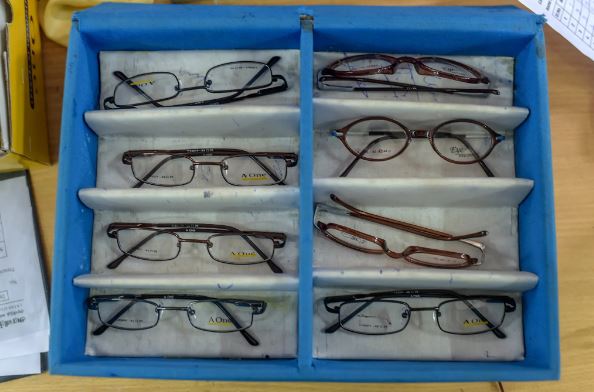If you’re over 50, chances are you’re familiar with the need for reading glasses to tackle presbyopia, the age-related decline in near vision. While many in developed countries take these corrective lenses for granted, nearly a billion people in the developing world lack access to affordable eyewear, leading to significant challenges in daily life and work. However, a groundbreaking study published in the journal PLOS One sheds light on the transformative impact of providing free reading glasses to individuals in need, particularly in regions like Bangladesh.
The study, conducted by researchers including Dr. Nathan Congdon from Queen’s University Belfast, focused on over 800 adults in rural Bangladesh, many of whom work in occupations requiring meticulous attention to detail. Participants, including tea pickers, weavers, and seamstresses aged 35 to 65, were divided into two groups: one receiving free reading glasses and the other not.
Eight months later, the results were striking. Participants who received glasses experienced a remarkable 33 percent increase in income compared to those without glasses. This boost in income, from an average of $35.30 to $47.10 per month, underscores the profound economic implications of uncorrected vision in communities where access to affordable eyewear is limited.
Dr. Congdon, a specialist in low-cost eye care delivery, highlighted the significance of these findings in quantifying the economic impact of uncorrected vision. He emphasized that providing vision care interventions, such as free reading glasses, can be as cost-effective and life-changing as other healthcare initiatives, potentially persuading governments to prioritize such interventions.
The study’s lead author’s sentiments were echoed by Dr. David S. Friedman, a professor of ophthalmology at Harvard Medical School, who praised the study’s results and emphasized the substantial impact such interventions could have on people’s lives.
Indeed, access to vision care has long been neglected in the developing world, with infectious diseases often receiving more attention and funding. However, vision impairment is a significant global issue, with far-reaching consequences including increased risk of accidents and reduced productivity. According to the World Health Organization, uncorrected vision results in over $400 billion in lost productivity worldwide.
In contrast to the considerable economic burden of uncorrected vision, addressing presbyopia is relatively inexpensive. Reading glasses can be produced for less than $2 per pair, and fittings can be conducted by trained community workers in a single day. This cost-effective approach makes it feasible to provide eyewear to those in need on a large scale.
Despite the clear benefits of providing reading glasses, challenges remain, particularly in changing social attitudes towards wearing glasses, especially for women in conservative societies like Bangladesh. Misha Mahjabeen, the Bangladesh country director for VisionSpring, highlighted the additional hurdles faced by women, who often bear the brunt of household responsibilities and income generation.
However, the positive impact of corrective eyewear cannot be overstated, especially for women who face increased challenges due to vision impairment. Improved vision can enhance productivity and economic opportunities, reducing the risk of domestic violence and empowering women to support their families more effectively.
VisionSpring, a nonprofit organization involved in the study, has significantly scaled up its distribution of reading glasses in recent years, reflecting the growing recognition of the importance of vision care in improving livelihoods and quality of life.
The study’s findings align with previous research demonstrating the productivity gains associated with providing reading glasses, particularly among older workers. Agad Ali, a Bangladeshi tailor who participated in the study, shared how receiving glasses transformed his ability to work, doubling his income and restoring his sense of independence and empowerment.
the provision of affordable reading glasses represents a simple yet impactful solution to address presbyopia and its economic consequences in the developing world. By prioritizing vision care interventions, governments and organizations can unlock the potential of millions to lead healthier, more productive lives.

